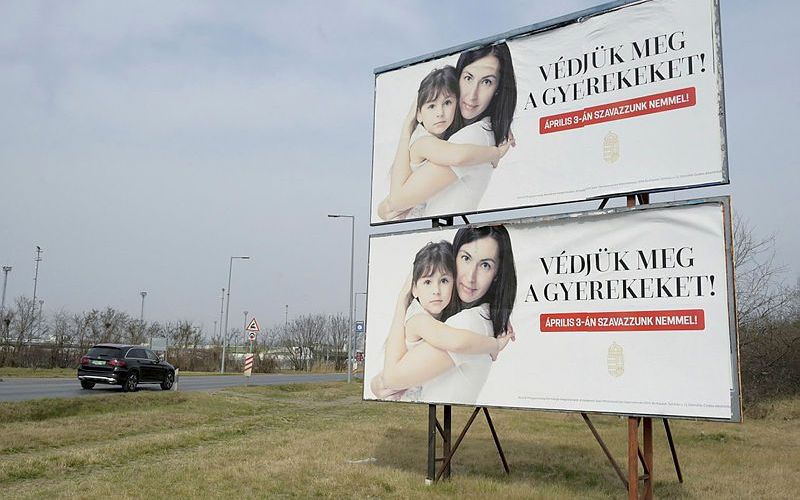Hungarians to vote for new term for Orban

Call to vote in the referendum. Photo EPA, Zsolt Czegledi
Central Europe
Hungarians will have to choose on Sunday. Everything that has been politically sensitive in recent years is coming back into play in this election: war with the neighbours, a stream of refugees, and the European Union's relationship. Yet it does not seem to harm the government.
Most leaders do not reach a fifth term. Often, they are stranded somewhere halfway. But if the polls are believed, Hungarian Prime Minister Viktor Orban will get a fifth term on Sunday (his fourth consecutive since 2010). However, the victory will probably not be as great as before.
The voters who vote for the ruling Fidesz party know many positive things about Orban. He pulled the country out of a financial crisis. Unemployment is at an all-time low. He has also continuously nurtured Hungarian patriotism, among other things, by taking a stand against 'Brussels' (which has become an abbreviation for European Union).
Traditional family
Last year, an additional issue was added: the protection of children and the traditional family. The constitution now states: the father is a man, and the mother is a woman. The Orban government felt this was necessary because of the shifting gender concept in the rest of the European Union.
Voters can also vote in a referendum on a law on sex education for children. Last year, the parliament voted for what many EU countries call an "anti-gay law". This law bans the presentation of homosexuality and transsexuality as something attractive and sets rules for sex education in schools. The starting point behind this law is clearly the heterosexual family of father, mother and children. Other family forms are possible in Hungary –in the form of a registered partnership– but the government sees it as its task to protect the traditional family.
Some call this policy on family and sexuality Christian, others conservative. It is clear that Hungary distinguishes itself sharply from mainly Western European trendsetters. That is why the Dutch Prime Minister Mark Rutte provoked Orban last summer by saying that Hungary would do better to leave the EU. No EU leader repeated that after Rutte, but it did show how sensitive this topic is. However, Fidesz will get great support for this law among the voters.
Public broadcasting
At the same time, there is a lot of opposition in Hungary. The problem is that it has been fragmented since 2010. For the first time, the opposition has a joint prime ministerial candidate: Peter Marki-Zay. This is a Roman Catholic father of seven children who, in social terms, is not far away from the conservative Orban.

The opposition points to corruption in Fidesz circles: it is always the same companies that carry out large projects. Opposition leaders also say that they are hardly, if ever, invited to the public broadcaster; the only voice they broadcast is that of the government. In addition, somewhere in the country this week, a pile of filled-in postal votes of Hungarians from abroad was found. This casts doubt on the fairness of the elections. Finally, Orban has been accused of working too closely with the Russian President Putin.
Orban has condemned the attack on Ukraine, but refuses to take part in Russia's energy boycott. He also blocks the transit of "lethal weapons" to Ukraine. Hungary is open to Ukrainian refugees but not comparable to Poland in numbers. Therefore, the relationship with the other Visegrad countries (Poland, the Czech Republic and Slovakia) has been under strong pressure in recent weeks.
Related Articles






